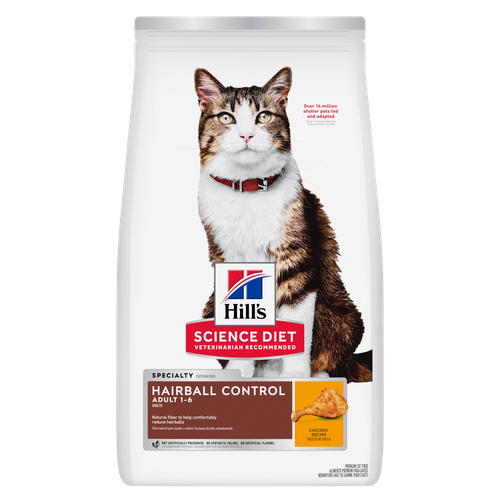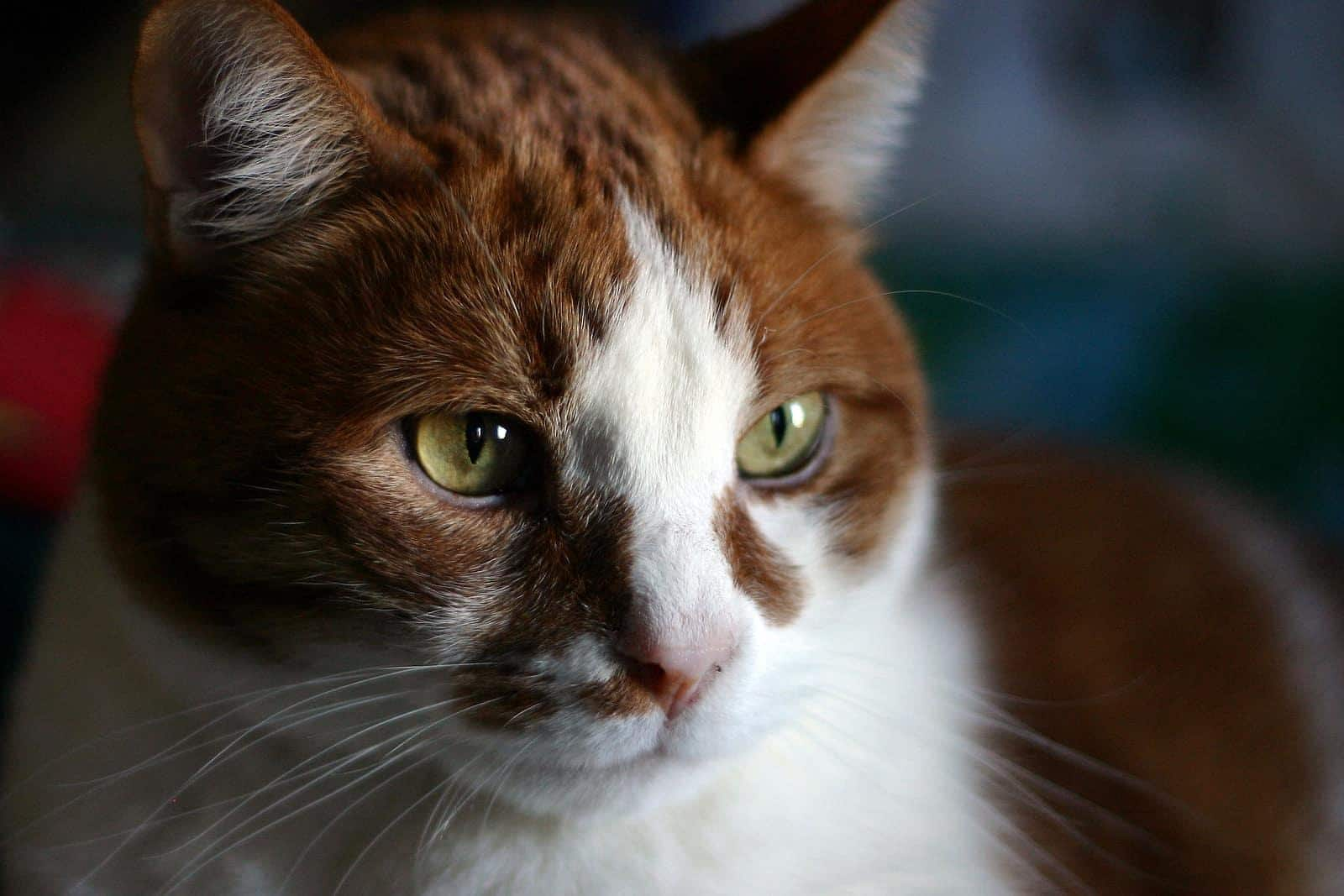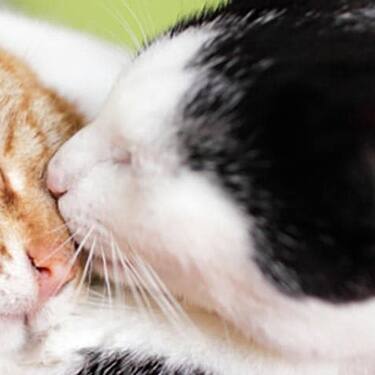
-
Find the right food for your petTake this quiz to see which food may be the best for your furry friend.Find the right food for your petTake this quiz to see which food may be the best for your furry friend.Health CategoryFeatured products
 Adult Chicken & Barley Recipe Dog Food
Adult Chicken & Barley Recipe Dog FoodSupports lean muscle and beautiful coat for adult dogs
Shop Now Perfect Weight Adult Small & Mini Dog Mousse with Turkey
Perfect Weight Adult Small & Mini Dog Mousse with TurkeyHill's Science Diet Adult Small & Mini Perfect Weight Dog Food with Turkey is a complete pet food for small breed adult dogs, including those that are less active, neutered or otherwise prone to weight gain.
Shop Now Adult Light Large Breed Chicken Meal & Barley Recipe Dog Food
Adult Light Large Breed Chicken Meal & Barley Recipe Dog FoodFewer calories for less active large breed dogs
Shop NowFeatured products Adult Healthy Cuisine Roasted Chicken & Rice Medley Cat Food
Adult Healthy Cuisine Roasted Chicken & Rice Medley Cat FoodDelicious roasted chicken and rice in a mouthwatering sauce
Shop Now Adult Perfect Digestion Chicken, Barley & Whole Oats Recipe Cat Food
Adult Perfect Digestion Chicken, Barley & Whole Oats Recipe Cat FoodHill's Science Diet's breakthrough nutrition supports ultimate digestive well-being & healthy microbiome
Shop Now Adult Hairball Control Chicken Recipe Cat Food
Adult Hairball Control Chicken Recipe Cat FoodNatural fibre comfortably reduces hairballs
Shop Now -
DogCat
- Cat Tips & Articles
-
Health Category
- Weight
- Skin & Food Sensitivities
- Urinary
- Digestive
- Kidney
- Dental
- Serious Illness
-
Life Stage
- Kitten Nutrition
- Adult Nutrition
Featured articles Fun Ideas for Kids and Pets This Summer
Fun Ideas for Kids and Pets This SummerOutdoor summer activities with your dog or cat can be fun for kids, too. Learn how they also teach kids responsibility & creates a bond with their pet.
Read More Water
WaterWater is the most important nutrient of all and essential for life. Animals can lose almost all their fat and half their protein and still survive, but if they lose 15% of their water, it will mean death.
Read More Show some love with wet foods: a great choice for pets with health issues
Show some love with wet foods: a great choice for pets with health issuesShow some love with wet foods: a great choice for pets with health issues.
Read More -


Cancer in cats is unfortunately considered relatively common and more prevalent than ever before. But why?
In part, it's because cats are living longer. It's not unusual for veterinarians to see two or even three cats over the age of 15 every day. They're the beneficiaries of great home care, advanced nutritional research and modern veterinary medicine. Read on to learn about the signs to look out for and how to give your kitty the best possible oncology care if she ever needs it.
Defining Cancer

What exactly constitutes a cancer? Contrary to popular opinion, not every ugly mass, growth or cat tumor qualifies.
Cancer is best defined as a disorder caused by the uncontrolled division of abnormal cells. A cancer may originate in one single tissue of the body, but it can sometimes affect faraway organs as it spreads, typically through the circulatory and lymphatic systems by a process vets refer to as metastasis. For example, cells dividing in a tumor that starts in your cat's ear could travel through the bloodstream to her liver.
Most Common Cat Tumors
Just like in people, cancer in cats is often hereditary, which makes it more prevalent within specific genetic lines. This means that some breeds of cats can be predisposed. It also means that some cancers are more common in cats than they are in people. Here are the most typical kinds of cancer in cats:
- Lymphoma: Often associated with the feline leukemia virus, the Cornell Feline Health Center notes that this is perhaps the most common cause of cat cancer overall.
- Squamous cell carcinoma: The oral version tends to be aggressive, destructive and painful, says Cornell Feline Health Center, but lesions tend not to spread. The skin form is similarly localised and primarily affects the skin of the nose and ear tips. Ultraviolet light exposure is strongly associated with this type of cancer.
- Fibrosarcoma or soft tissue sarcoma: This is a cat tumor that forms in a muscle or connective tissue of the body, writes Wag!. It can appear just about anywhere on your cat's body.
- Mammary tumors: Cornell Feline Health Center notes that these are considered relatively common in intact cats, but among cats neutered before puberty (like the vast majority of our household companions) they're deemed very rare.


Tasty Tips
Rare Cat Tumor Types
- Skin tumors are uncommon in cats, but since they tend to grow aggressively, most suspicious skin tumors should be removed.
- Lung tumors happen most commonly when other cancers spread through the blood and lymphatic system to the delicate lobes that comprise the lungs.
- Brain tumors can happen when cancers metastasise from elsewhere, but they can also originate in the brain.
- Nasal tumors tend to start in the nose and can be very aggressive.
- Liver tumors that originate as the first cancer site make up a small percentage of all cat tumors, but the liver is a popular site for metastasis.
Signs of Cancer in Cats
Unfortunately, cancer in cats, like so many other feline diseases, can be hard to detect. Like her wild ancestors, your cat is an expert at hiding her discomfort. After all, a sick cat in the wild is more likely to be preyed upon.
The signs of cancer also aren't at all straightforward (in most cases). Except for obvious lumps and other superficial lesions, they tend to be non-specific and similar to the signs of other kinds of internal disease. Here are the most common signs of cancer in cats:
- Weight loss: Losing weight in spite of no obvious change in appetite is among the most common signs cat parents should look out for.
- Poor appetite: Any change in appetite is a red flag that calls for immediate veterinary attention.
- Changes in eating style: Eating messily or chewing with one side of the mouth can be the sign of an oral tumor. (Dental issues are highly suspect here, too.)
- Lethargy: Moving around less or hiding behaviour is common in sick cats.
- Lumps, bumps and skin lesions: These are the most obvious but not the most common.
- Vomiting and diarrhoea: Cancer in cats often affects the digestive system.
- Breathing changes: Any changes in respiration are cause for concern. Some cancers can cause fluid or inflammation in or around the lungs.
Any of these should motivate a cat parent to take their pet to the vet immediately.
Cancer Treatment
Modern veterinary medicine has made treatment of cancer in cats more effective and more humane than ever before. Treatment protocols geared to sensitive feline personalities are being developed every day. Ideally, they're undertaken in a home environment, but some part of the therapy is typically performed in a veterinary hospital setting.
While surgery is often in order for superficial cat tumors (squamous cell carcinoma of the skin and mouth, soft tissue sarcomas and mammary tumors, for example), chemotherapy may be required. Though it sounds scary, chemotherapy is different in cats than it is in people. Its goal is simply to send the cancer into remission without affecting your furry friend's quality of life. If at any time your cat becomes uncomfortable as a result of the therapy (usually injections), the treatment may be stopped. Radiation therapy is an option too, but it's less often undertaken for cats.
The aim of any cancer treatment, regardless of the kind of cat tumor, is to improve the patient's quality of life. If your cat is diagnosed with cancer, your vet can suggest the best course of treatment and help her back on her way to wellness.


Dr. Patty Khuly is an award-winning veterinarian known for her independent thinking, her spirited pet advocacy, her passion for the veterinary profession, and her famously irreverent pet health writing.
Dr. K is an honors graduate of both Wellesley College and the University of Pennsylvania School of Veterinary Medicine. She received her MBA at The Wharton School of Business as part of the prestigious VMD/MBA dual-degree program. She now owns Sunset Animal Clinic, a veterinary practice in Miami, Florida.
Related products

Natural fibre comfortably reduces hairballs

Healthy digestion for easy litter box clean-up

Delicious roasted chicken and rice in a mouthwatering sauce

Hill's Science Diet's breakthrough nutrition supports ultimate digestive well-being & healthy microbiome
Related articles

Being overweight puts a cat at risk for developing many serious health issues. Weight gain indicates an increase in body fat and usually results when your cat eats too much and exercises too little.

Understand the symptoms of a chronic upset stomach in your cat, and learn how to help sooth their discomfort.

Obesity affects more than 30 percent of cats in America. Learn how you can properly feed and exercise your cat to improve its weight management.

Provide the best possible treatment for cats with sensitive skin by spotting the signs, knowing the causes, and understanding the remedies. Learn more now.

Put your cat on a diet without them knowing
Our low calorie formula helps you control your cat's weight. It's packed with high-quality protein for building lean muscles, and made with purposeful ingredients for a flavorful, nutritious meal. Clinically proven antioxidants, Vitamin C+E, help promote a healthy immune system.
Put your cat on a diet without them knowing
Our low calorie formula helps you control your cat's weight. It's packed with high-quality protein for building lean muscles, and made with purposeful ingredients for a flavorful, nutritious meal. Clinically proven antioxidants, Vitamin C+E, help promote a healthy immune system.

